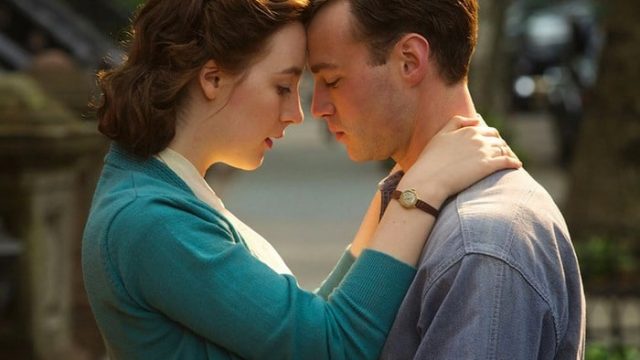Good morning, my dumplings! Did you survive the first full week in 2020 in tact? Here’s what I have for you this week….
On the 6th, David Walsh, a comrade at The World Socialist Web Site, interviewed Jonathan Rosenbaum:
“One thing that had an enormous influence on me was becoming friends with members of the French Communist Party whose tastes in cinema and art were quite different from those of American leftists that I knew. They were much more drawn to a certain intellectual radicalism, as represented by people such as [filmmakers] Jacques Rivette, Robert Bresson and Jacques Tati.”
Emily Kubincanek of Film School Rejects, talked about how the ordinariness the film gives Brooklyn its power, on the 8th:
“The 2016 Oscars were so stacked, even a wonderful film like Brooklyn was buried beneath other memorable contenders. Despite not taking home a lot of awards, John Crowley‘s drama remains one of the best films about leaving home. Its immigrant story is not an extraordinary one, but its emotional depth expresses the difficulty of building a new life far from home and why so few ever do it.”
Also on the 8th, Kenneth Partridge shared some fun facts about Depeche Mode, over at Mental Floss:
“Few bands inspire faith and devotion like Depeche Mode. Over a career spanning four decades, the boys from Basildon, England, have redefined what electronic music can look and sound like. With albums like 1987’s Music for the Masses and 1990’s blockbuster Violator, Depeche Mode forged a dark, sexy, mature synth-pop sound that has rocked stadiums across the globe.”
Hillary Kelly of Vulture, paid tribute to Elizabeth Wurtzel, also on the 8th:
“When Wurtzel died of metastatic breast cancer this week at the far, far too young age of 52, it was that unabashed, straightforward garden hosing of emotion that she was predominantly publicly remembered and loved for. That direct spray, her refusal to couch her neediness, her extravagance, her narcissism, her belief that her life before age 35 warranted not one but two memoirs, was also the reason she’d never morphed from unruly outsider into some middle-aged stateswoman of letters.”
On the 9th, Jeffrey Davies talked about how Nancy Drew helped him reject gender norms and toxic masculinity, for Book Riot:
“Ironically, Nancy becoming a misfit in the 2007 film was a bone of contention with most critics, who criticized taking the character out of her midwestern town where she was always the celebrated hero and dropping her in urban California to be mocked and bullied. In fact, none of Nancy Drew’s screen adaptations have ever been very well received—from the first Warner Brothers film adaptations in the 1930s to The CW’s most recent teen drama adaptation—since it seems that no audience wants to accept someone else’s version of what Nancy Drew looks like or how she behaves. She’s been around for so long that she exists individually in each reader’s imagination, making it virtually impossible to satisfy everybody at once.”
Also on the 9th, Rob Sheffield of Rolling Stone, said goodbye to Buck Henry:
“Buck Henry was an archetypal Seventies cult figure, one of the New Hollywood renegades who became an antihero. He wrote black comedies, from The Graduate to The Owl and the Pussycat to To Die For. He co-created the classic sitcom Get Smart with Mel Brooks, a James Bond parody featuring Don Adams as nebbish spy Maxwell Smart. He became an actual TV star hosting Saturday Night Live — he hosted 10 times, all in the first five years. His Seventies celebrity mystique was very comparable to Randy Newman or Steely Dan: a Hollywood insider who liked working in the shadows, specialized in playing cynical con men, refused to smile for the camera and had zero desire to make any audience like him.”
Enjoy!

